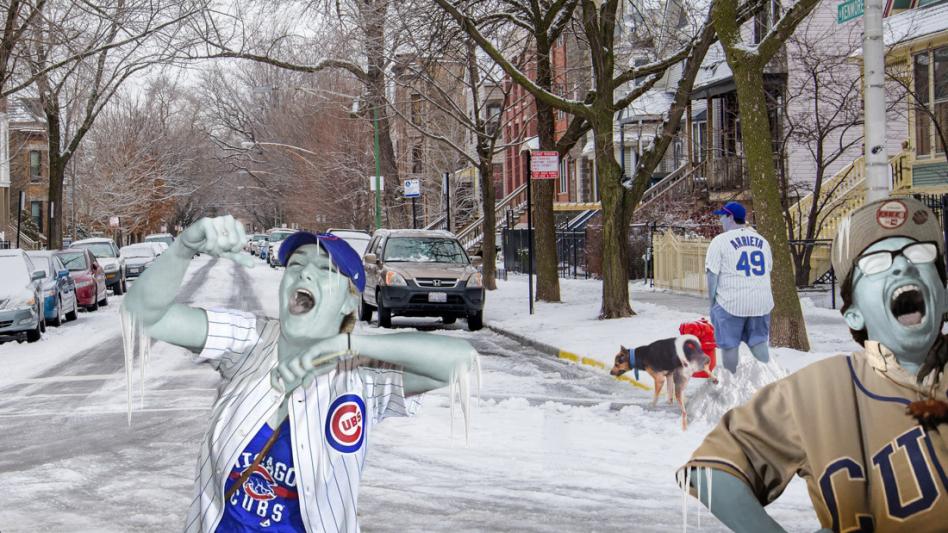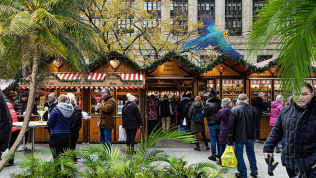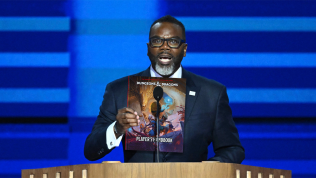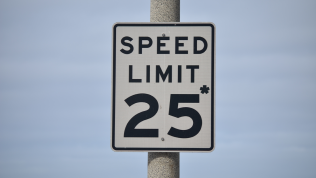
WRIGLEYVILLE — Although initially a boon for developers and rich Evanston residents, the unchecked development of Chicago’s formerly untamed Wrigleyville could come with an unexpected price tag as top climatologists warn that rising temperatures due to climate might lead to an early thaw for some of Wrigleyville’s rowdiest Cubs fans in the future.
“The damage this could do to the Wrigleyville bar ecosystem is unprecedented,” said Dr. Brentley Chifflin, 37, a member of the faculty at the College of Arts & Sciences at Loyola University. “Traditionally, cold temperatures through March and strong easterly winds keep the city’s beefiest baseball boys preserved in stasis until just before opening day, which mitigates the amount of damage they can do to the neighborhood before the preseason starts.”
Advertisement:
Although local law enforcement and the Ricketts family insist there’s no cause for concern, many local establishments aren’t so confident. “I remember something similar happening back in the 70s,” said Leila Pernetti 62, a bartender at Vines on Clark. “A warm front in early March came in and ‘whammo!’—everywhere was overrun with Cubs fans we’d been assured weren’t going to be active until the end of the month. I’ve never seen anything like it.”
“Most bars didn’t know what hit ‘em,” Pernetti continued. “One ran out of Old Style by about 3 p.m. By 3:15, a bunch of guys named Mike had pulled it up by the foundation and flipped it—and I mean the whole bar—upside down.”
“The 70s were one thing,” explained Chifflin, “since that was before you had the rollback of the Carter Administration’s ecological protections for areas like Wrigleyville. Now that we’ve decided a certain level of ecosystem damage is worth it for a Big Star that doesn’t require you to go to Wicker Park, it’s going to get much worse. So just imagine that if you can.”
Advertisement:
Don Hinckler, 45, a Wrigleyville enthusiast who leads field trips of the area for the Peggy Notebaert Nature Museum, was equally critical of what he called the “custodial neglect” that had appeared in the wake of the Cubs’ historic 2016 World Series title.
“Mother Nature is a very intentional designer,” he said. “Places like the McDonalds and Taco Bell were essential structural components of the Wrigleyville habitat, and have traditionally acted as release valves for the pressure created by early Spring appearances by rowdy Cubs fans.”
“But as human development of the area has continued,” he said, “we’re left with fewer and fewer areas that can accommodate a spillover of a beet-red guy in a soiled Jake Arrieta jersey and white cargo shorts screaming about how his friend Chris is a ‘peckerwood’ and trying to get into a fistfight at 2:30 p.m. on a weekday.”
Advertisement:
When asked if he ever thought Wrigleyville might ever recover, however, Hinckler remained hopeful. “If people want it,” he said. “Wrigleyville can be what it once was—but it’s going to take a lot of time on our part. A lot of time, a lot of effort and a lot of skunky beer.”






